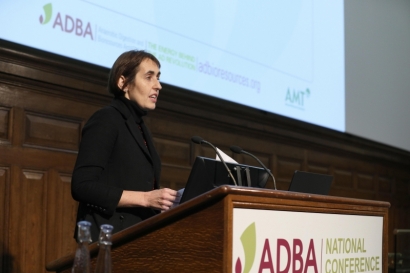
Charlotte Morton, Chief Executive of the Anaerobic Digestion & Bioresources Association (ADBA), said, “The Scottish Government has set itself ambitious but necessary targets for generating renewable energy in its new Energy Strategy, and renewable heat and electricity produced through AD can make an important contribution to these goals, as well as reducing emissions from landfill, creating rural jobs, and helping to restore degraded soils.”
AD is a technology that uses natural processes to recycle organic wastes and process purpose-grown energy crops into green gas that can then be used to produce renewable heat and power, low-carbon transport fuel, and nutrient-rich biofertilizer. AD is currently delivering 45 MWe of power and 11,000 m3/hr of heat in Scotland.
The Scottish Government’s Energy Strategy, the first of its kind in the country, sets a new target for at least 50% of all Scotland's heat, transport, and electricity consumption to be supplied from renewable sources by 2030. The strategy notes that biogas and biomethane produced through AD will have a role to play in helping to decarbonize Scotland’s energy system, and notes that existing biomethane sites in Scotland already produce enough gas to supply the equivalent of approximately 85,000 homes.
Morton’s comments come ahead of the ADBA Scottish National Conference 2018, taking place in Glasgow on February 28, 2018. Last year’s conference was the first dedicated solely to the Scottish AD industry, and this year’s event will focus on AD’s potential contribution to business and farming in Scotland, with Cabinet Secretary for Environment, Climate Change, and Land Reform Roseanna Cunningham MSP giving the keynote presentation on Scotland’s proposed new Climate Change Bill.
Photo: Charlotte Morton, Chief Executive of the ADBA

